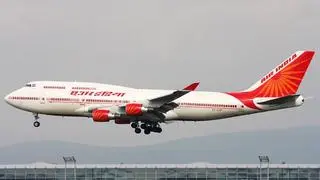With the impact of the pandemic going down to some extent, air travel for leisure has increased dramatically. The domestic air passenger traffic rose for the seventh straight week with the average number of daily fliers increasing to 1.66 lakh for the week ending July 17 compared to 1.5 lakh fliers a week before witnessing about 45 per cent of pre-Covid departures so far. However, domestic airlines might find it hard to capitalise on the rush for air travel as the price of aviation turbine fuel (ATF) is going up every week. ATF prices have increased by 40 per cent from January last year, from around ₹50,000 per kilolitre to around ₹70,000 per kilolitre. In July itself, ATF prices for domestic airlines rose 2.44 per cent to ₹69,857 per kilolitre from ₹68,262.35 per kilolitre over a fortnight.
Covid-19 impact
The aviation industry is perhaps the most impacted among all sectors because of the pandemic, with FY21 considered the worst in history. The losses have become unmanageable, especially for domestic airlines as they operate on very thin margins. According to the Global Flight Pricing report, airlines in India offer some of the cheapest fares ranging from $0.12 per km to $0.15 per km. But such cheap airfares are hardly sustainable now because of increasing ATF prices. This is in spite of the government increasing the cap on airfares by 15 per cent. The ATF accounts for nearly one-third of the total cost of running an airline. According to reports, one of the main reasons for the sharp increase in jet fuel prices is the firming up of both product and crude price on demand rise amidst the slowdown of the pandemic. The high level of taxes in the country is keeping the rate higher.
The largest domestic operator Indigo’s average fuel costs increased by 26 per cent on a quarter-on-quarter basis during the fourth quarter of FY2021. Fuel costs as a percentage of salesfor the fourth quarter were 30.8 per cent compared to 23.3 per cent in the previous quarter. The brokerage firm Motilal Oswal believes that the airline’s losses will be about ₹5,300 crore in FY22 because of higher crude cost (at $60/bbl in FY22E v/s $44 in FY21). Fuel costs are expected to grow, as per estimates.
The impact on rising crude prices is even worse on Spicejet. According to analysts, every US dollar change in crude impacts the company’s margins by 60 basis points, leading to higher losses. Fuel costs were about ₹707.3 crore for the fourth quarter, nearly 56 per cent more than Q3 on a sequential basis.
Operating losses
According to estimates, the aggregate operating losses of six airlines on a daily basis is expected to be around ₹50-₹60 crore even with passenger traffic at 45 per cent of the pre-Covid period, compared to about ₹60-75 crore last year.
“Perhaps the only way out to keep their costs at a manageable level is by asking the government to reduce taxes on ATF. Else, at least one of the major airlines is likely to fold up,” Vijay Belavadi, founder and managing partner with Peepaltree Ventures which invests in the aviation sector told BusinessLine .
Airline experts however say that airlines should consider switching over to sustainable aviation fuel (SAF) in the long term to reduce dependence on ATF. Reports say that Boeing has already declared it will certify its aircraft to fly on 100 per cent SAF by 2030, which should encourage airlines to seriously consider it as an alternative.
Till that happens, as Belavadi points out, the government should, at least for the short-term, come to the rescue.







Comments
Comments have to be in English, and in full sentences. They cannot be abusive or personal. Please abide by our community guidelines for posting your comments.
We have migrated to a new commenting platform. If you are already a registered user of TheHindu Businessline and logged in, you may continue to engage with our articles. If you do not have an account please register and login to post comments. Users can access their older comments by logging into their accounts on Vuukle.